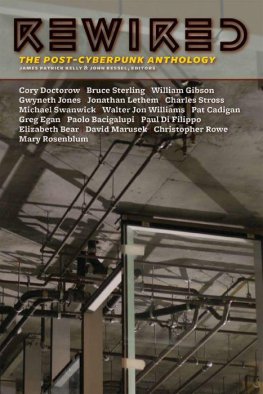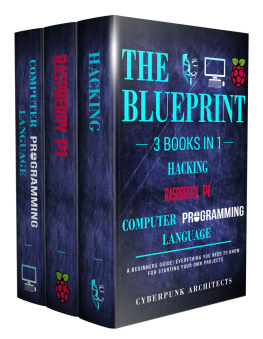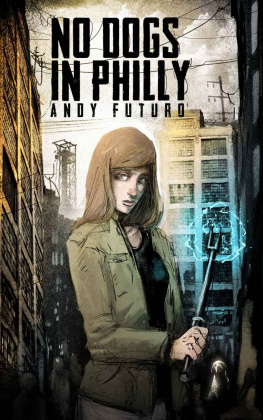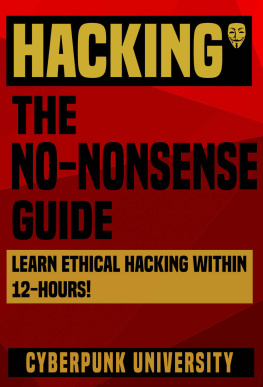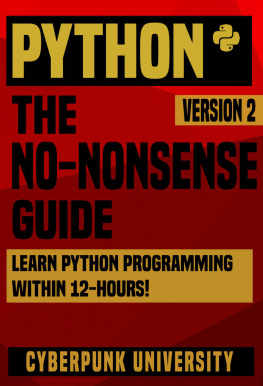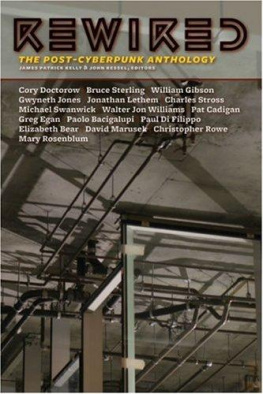Kessel John - Rewired: the post-cyberpunk anthology
Here you can read online Kessel John - Rewired: the post-cyberpunk anthology full text of the book (entire story) in english for free. Download pdf and epub, get meaning, cover and reviews about this ebook. City: San Francisco;CA, year: 2007, publisher: Tachyon Publications, genre: Detective and thriller. Description of the work, (preface) as well as reviews are available. Best literature library LitArk.com created for fans of good reading and offers a wide selection of genres:
Romance novel
Science fiction
Adventure
Detective
Science
History
Home and family
Prose
Art
Politics
Computer
Non-fiction
Religion
Business
Children
Humor
Choose a favorite category and find really read worthwhile books. Enjoy immersion in the world of imagination, feel the emotions of the characters or learn something new for yourself, make an fascinating discovery.

- Book:Rewired: the post-cyberpunk anthology
- Author:
- Publisher:Tachyon Publications
- Genre:
- Year:2007
- City:San Francisco;CA
- Rating:5 / 5
- Favourites:Add to favourites
- Your mark:
- 100
- 1
- 2
- 3
- 4
- 5
Rewired: the post-cyberpunk anthology: summary, description and annotation
We offer to read an annotation, description, summary or preface (depends on what the author of the book "Rewired: the post-cyberpunk anthology" wrote himself). If you haven't found the necessary information about the book — write in the comments, we will try to find it.
Rewired: the post-cyberpunk anthology — read online for free the complete book (whole text) full work
Below is the text of the book, divided by pages. System saving the place of the last page read, allows you to conveniently read the book "Rewired: the post-cyberpunk anthology" online for free, without having to search again every time where you left off. Put a bookmark, and you can go to the page where you finished reading at any time.
Font size:
Interval:
Bookmark:
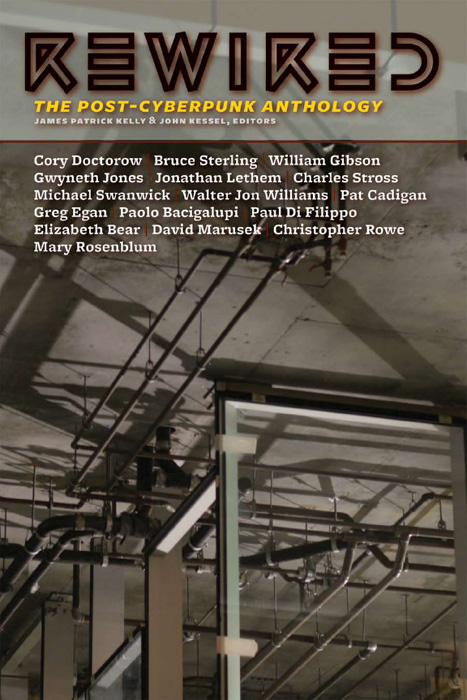
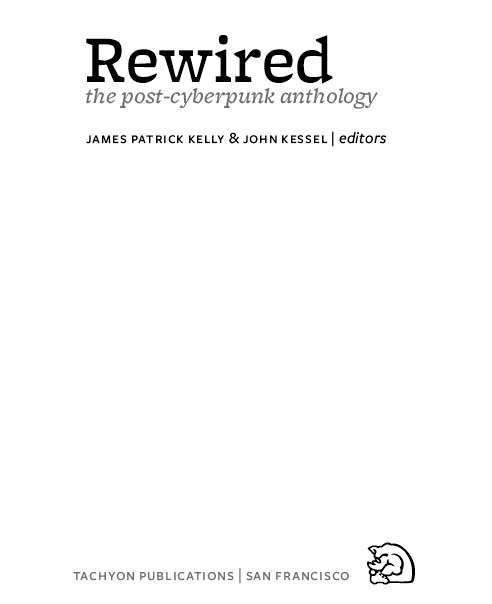
Rewired: The Post-Cyberpunk Anthology
Copyright 2007 by James Patrick Kelly & John Kessel
This is a work of fiction. All events portrayed in this book are fictitious, and any resemblance to real people or events is purely coincidental. All rights reserved, including the right to reproduce this book, or portions thereof, in any form.
Cover photograph 2007 by Patty Nason
Design & composition by John D. Berry
The text typeface is Freight Text, with Freight Sans and Freight Micro
Tachyon Publications
1459 18th Street #139
San Francisco, CA 94107
(415) 285-5615
www.tachyonpublications.com
Series Editor: Jacob Weisman
ISBN 10:1-892391-53-8
ISBN 13: 978-1-892391-53-7
Printed in the United States of America
First Edition: 2007
9 8 7 6 5 4 3 2 1
Introduction 2007 by James Patrick Kelly and John Kessel | Sterling-Kessel Correspondence 2007 by John Kessel and Bruce Sterling | William Gibson quotation 1999 from No Maps for These Territories. Used by permission of the author. | Bicycle Repairman 1996 by Bruce Sterling. First appeared in Intersections, edited by John Kessel, Mark L. Van Name, and Richard Butner (Tor: New York). | Red Sonja and Lessingham in Dreamland 1996 by Gwyneth Jones. First appeared in Off Limits, edited by Ellen Datlow (St. Martins: New York). | How We Got in Town and out Again 1996 by Jonathan Lethem. First appeared in Asimovs Science Fiction, September 1996. | Yeyuka 1997 by Greg Egan. First appeared in Meanjin, V56, #1, 1997. | The Final Remake of The Return of Little Latin Larry with a Completely Remastered Soundtrack and the Original Audience 1997 by Pat Cadigan. First appeared in Future Histories, edited by Stephen McClelland (Horizon House: Norwood, Massachusetts). Thirteen Views of a Cardboard City 1997 by William Gibson. First appeared in New Worlds, edited by David Garnett and Michael Moorcock (White Wolf: Stone Mountain, Georgia). | The Wedding Album 1999 by David Marusek. First appeared in Asimovs Science Fiction, June 1999. | Daddys World 1999 by Walter Jon Williams. First appeared in Not of Woman Born (Roc: New York). | The Dog Said Bow-Wow 2001 by Michael Swanwick. First appeared in Asimovs Science Fiction, October/November 2001. Lobsters 2001 by Charles Stross. First appeared in Asimovs Science Fiction, June 2001. | Whats Up, Tiger Lily? 2003 by Paul Di Filippo. First appeared in The Silver Gryphon, edited by Gary Turner and Marty Halpern (Golden Gryphon: Urbana, Illinois). | The Voluntary State 2004 by Christopher Rowe. First appeared in sei fiction, May 5, 2004. | Two Dreams on Trains 2005 by Elizabeth Bear. First appeared in Strange Horizons, January 3, 2005. | The Calorie Man 2005 by Paolo Bacigalupi. First appeared in The Magazine of Fantasy & Science Fiction, October/November 2005. | Search Engine 2006 by Mary Rosenblum. First appeared in Analog, September 2005. | When Sysadmins Ruled the Earth 2006 by Cory Doctorow. First appeared in Jim Baens Universe, August 2006.|
W E D LIKE TO THANK THE FOLLOWING PEOPLE for advice, suggestions, and recommendations: Wilton Barnhardt, Richard Butner, Matthew Cheney, Gregory Frost, Eileen Gunn, Rich Horton, Kelly Link, and David Moles.
Our thanks are also due to Jacob Weisman, Jill Roberts, and the other folks at Tachyon Publications who helped see this project through to completion.
None of these estimable people are responsible for errors of judgment or taste we committed in assembling this anthology.
However, I dont worry much about the future of razors edge techno-punk. It will be bowdlerized and parodized and reduced to a formula, just as all other SF innovations have been. It scarcely matters much, because as a movement, Punk SF is a joke. Gibsons a litterateur who happens to have an unrivalled grasp of the modern pop aesthetic. Shiner writes mainstream and mysteries. Ruckers crazy; Shirleys a surrealist; Pat Cadigans a technophobe. By 95 well all have something else cooking.
Bruce Sterling, in a letter to John Kessel, 29 March 1985
The Hugo Award-winning editor David Hartwell tells the story of how Bruce Sterling approached him in 1983 with a proposal for an anthology of short stories which would eventually become the classic Mirrorshades. The book was to be a kind of literary manifesto for the newly emerging cyberpunk movement. David said he was indeed interested and asked how many writers Bruce expected would be in Mirrorshades. Bruce said he had five or six in mind. David replied that five or six was not enough for a movement and that Bruce would need at least a dozen. So Bruce set out to recruit writers for the movement and his anthology, even if they were not card-carrying cyberpunks. Among those he found was one of the editors of this book, who was at the time most closely associated with the humanist camp, said to be in opposition to cyberpunk.
It is not surprising that the cyberpunk movement, so quick to sneer at other kinds of science fiction and to strike an attitude of hip self-importance, would be controversial. To its critics, cyberpunk was all borrowed surface and no substance: rock and roll Alfred Bester, Raymond Chandler with the serial numbers filed off. To the cynical, it was nothing but a marketing ploy to advance the careers of those select few who were permitted to hang their leathers in the secret Node Zero clubhouse. But as they continued to publish their innovative stories and novels, readers and eventually writers and critics began to acknowledge that there might be something to cyberpunk. In 1986, the pseudonymous Vincent Omniaveritas, writing in the cyberpunks snarky house organ, Cheap Truth, brought the classic cyberpunk era to an end. I hereby declare the revolution over, crowed Vince. Long live the provisional government.
And then the real arguing started.
In the quarter century since, the debate has continued over the place of cyberpunk not only in science fiction, but in the culture as a whole. The literary discussion was complicated when some of the original cyberpunks tried to distance themselves from the movement. Naysayers seized on this to declare that cyberpunk was actually a movement of just one and his name was William Gibson. It soon became apparent that the center could not hold. However, the movement did not implode. Rather, popular culture hacked into it and turned cyberpunk to its own purposes. We saw cyberpunk music, movies, comics, and videogames. The slick magazine Wired became the Popular Science of cyberpunk. The cyberpunks had made computers and programming sexy; digital geekdom returned the favor by trying to reverse-engineer their ideas in silicon and code. But as it became more familiar, it also became tamer. Or maybe it grew up. There were cyberpunk ad agencies, cyberpunk fashion designers. Timothy Leary declared that the movie War Games was cyberpunk. The more people appropriated cyberpunk to their own uses, the fuzzier it became.
Our genre has been largely nonplussed by the spread of the cyberpunk meme. Learned papers have been given to explain the phenomenon. Some complain that science fiction has more to offer than dark visions of disaffected loners contending with totalitarian corporations. The street, so central to the classic cyberpunk vision, is not the world, they say. And they are right, of course. Meanwhile, as second and third generation writers have put on their mirrorshades, they are all too often dismissed as mere imitators. Some in our genre have decided that they know what cyberpunk had to say, and, whether they agree with it or not, have consigned it to the dustbin of literary history. Cyberpunk can no longer be an ideology, they would say. It can only be a flavor.
Font size:
Interval:
Bookmark:
Similar books «Rewired: the post-cyberpunk anthology»
Look at similar books to Rewired: the post-cyberpunk anthology. We have selected literature similar in name and meaning in the hope of providing readers with more options to find new, interesting, not yet read works.
Discussion, reviews of the book Rewired: the post-cyberpunk anthology and just readers' own opinions. Leave your comments, write what you think about the work, its meaning or the main characters. Specify what exactly you liked and what you didn't like, and why you think so.


